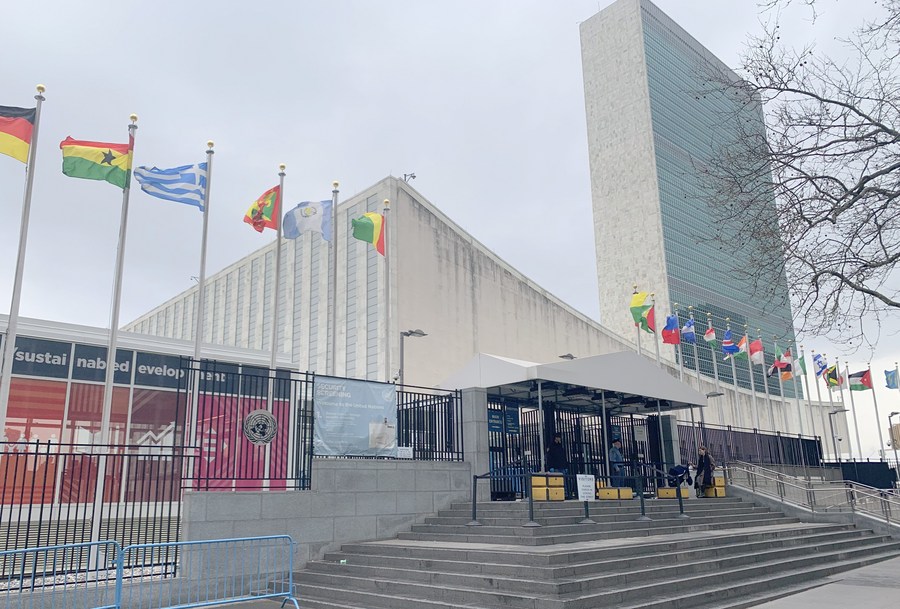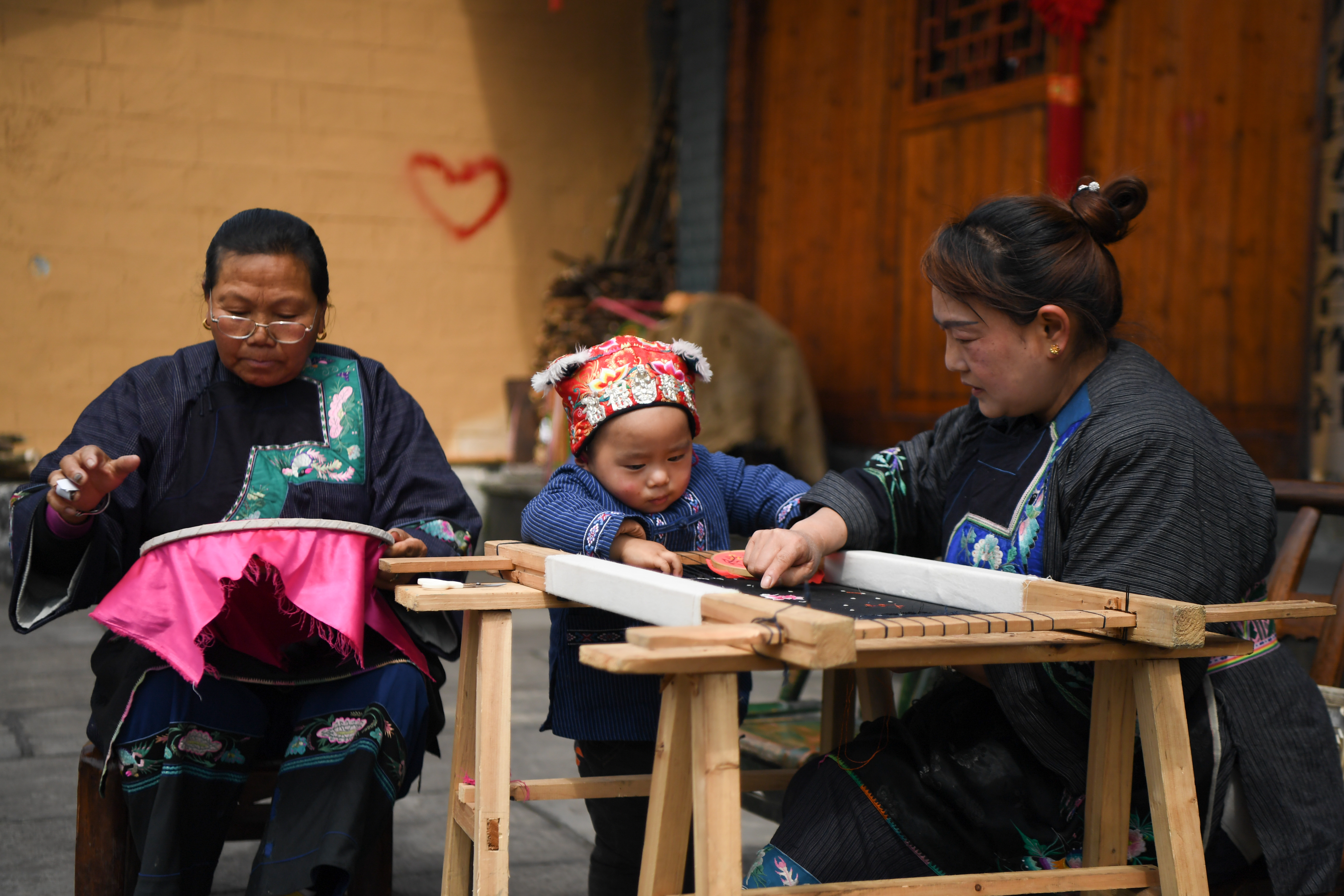
Photo taken on March 10, 2020 shows the visitors' entrance to the United Nations headquarters in New York. (Xinhua/Wang Jiangang)
Resolution 2532 calls on all parties to armed conflicts to engage immediately in a durable humanitarian pause for at least 90 consecutive days amid the COVID-19 pandemic.
UNITED NATIONS, July 1 -- The Security Council on Wednesday adopted a resolution on COVID-19, demanding a general and immediate cessation of hostilities in all situations on its agenda.
Resolution 2532, which won the unanimous support of the 15 members of the council, calls on all parties to armed conflicts to engage immediately in a durable humanitarian pause for at least 90 consecutive days, in order to enable the safe, unhindered and sustained delivery of humanitarian assistance, provisions of related services by impartial humanitarian actors, and medical evacuations.
It affirms that this general and immediate cessation of hostilities and this humanitarian pause do not apply to military operations against the Islamic State (IS), Al-Qaida and Al-Nusra Front, and all other individuals, groups, undertakings and entities associated with Al-Qaida or the IS, and other Security Council-designated terrorist groups.
The resolution requests the UN secretary-general to help ensure that all relevant parts of the UN system accelerate their response to the COVID-19 pandemic with a particular emphasis on countries in need, including those in situations of armed conflict or affected by humanitarian crises.
It requests the secretary-general to instruct peacekeeping operations to provide support, within their mandates and capacities, to host country authorities in their efforts to contain the pandemic.
It requests the secretary-general and UN member states to take all appropriate steps to protect the safety, security and health of all UN personnel in UN peace operations, while maintaining the continuity of operations.
It acknowledges the critical role that women are playing in COVID-19 response efforts, as well as the disproportionate negative impact of the pandemic, notably the socio-economic impact, on women and girls, children, refugees, internally displaced persons, older persons and persons with disabilities. It calls for concrete action to minimize this impact and ensure the full, equal and meaningful participation of women and youth in the development and implementation of an adequate and sustainable response to the pandemic.













